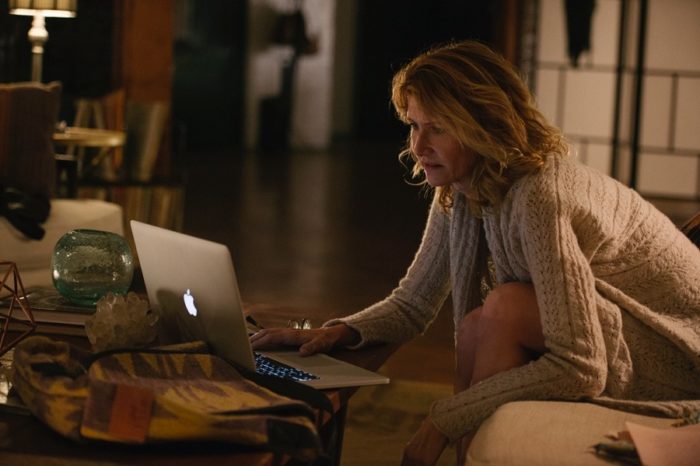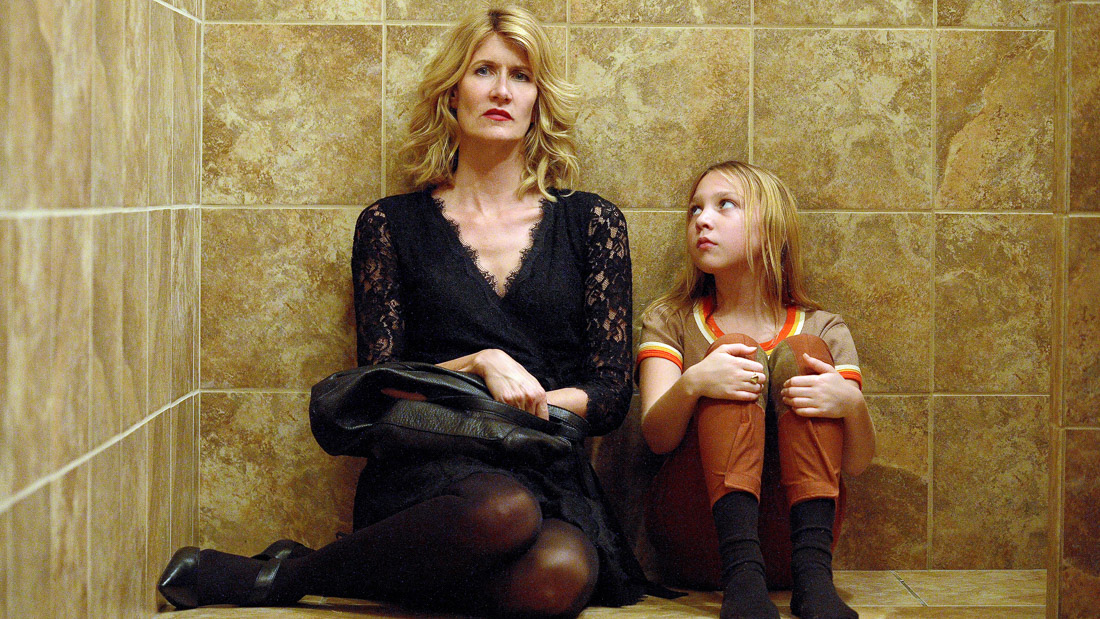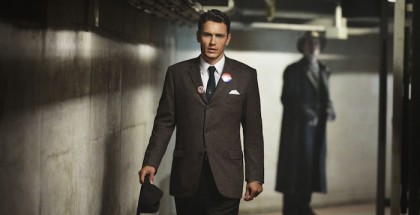VOD film review: The Tale (HBO)
Review Overview
Jennifer Fox
10Laura Dern
10David Farnor | On 05, Jun 2018
Director: Jennifer Fox
Cast: Laura Dern, Elizabeth Debicki, Jason Ritter
Certificate: TBC (18)
Watch The Tale online in the UK: Sky / NOW / Apple TV (iTunes) / Prime Video (Buy/Rent) / TalkTalk TV / Google Play
Read our interview with director Jennifer Fox here.
“I’m not the victim of this story. I’m the hero,” says teenager Jennifer in The Tale, a movie that delves into what happened to her one summer in the 1970s, when she attended a horse riding school run by two predatory adults. It’s a true story, which makes it even harder to watch, but not as difficult as it must be to tell. The telling of the story, though, is what matters – and Jennifer Fox’s unflinching, dramatised version of her life is as is remarkably honest as it just plain remarkable.
If you have been affected by any of the issues raised in The Tale, or if you need assistance or support, you can visit thetalemovie.com/get-help-now, or you can contact the Rape Crisis Helpline at www.rapecrisis.org.uk or on 0808 802 9999.
We first meet Jennifer (played by Laura Dern) as she works as a documentarian and professor. Her happy domestic life with boyfriend Martin (Common) is disrupted, though, when her mother, Nettie (Ellen Burstyn), unearths something that Jennifer wrote when she was 13. The hand-written story, which was submitted as a school assignment, detailed a relationship she had with coach Bill (Jason Ritter) and riding instructor Mrs. G (Elizabeth Debicki), something that teachers optimistically dismissed as fiction at the time. In a way, it was, but that only becomes clear as the adult Jennifer begins to re-examine her memories.
The candid way in which she interrogates her own accounts and assumptions makes for hugely powerful viewing; rather than undertake an investigative documentary in the true crime mould, Fox turns the camera on herself, never shying away from questioning her own mind and feelings. According to the young Jennifer, she had a romantic bond with Bill, and that’s something that the adult Jennifer continues to believe, already having told Martin that her first boyfriend was an older man – what, she reasons, does his age (or hers) matter?
It’s only when she sees the shocked reaction of both Martin and her mother that she begins to grapple with the reality of the situation. And it’s only then that we also see the full horror of the abuse revealed: for the first act of the movie, we’re shown Jennifer as she remembers herself, a confident girl approaching adulthood, not the small, quiet 13-year-old upon whom Bill and Mrs. G preyed. The recasting of Isabelle Nélisse in the role of young Jennifer halfway through a flashback is a jolting, sickening twist, and Fox’s brilliance as a filmmaker is using such techniques to both reflect her own process of reconciliation and enable us to empathise with it; the film is personal as well as powerful, embracing the subjectivity of Jennifer’s memory to an astonishing degree. Scenes rewind, the weather changes and conversations are replayed, each distorting of conventional cinematic structure adding to the intangible, ambiguous nature of this subjective narrative.
“We tell ourselves stories in order to live,” Jennifer explains to her students during one of several college lessons. But it’s more than that theme being spelled out; we also see Jennifer interviewing students and pushing them into awkward exchanges, as her trauma drives her behaviour in ways that aren’t spoken aloud.
Laura Dern takes on this impossible role with an unguarded, deeply nuanced air, resisting any opportunity to deliver an outburst or tirade; conversations with her mother (the equally brilliant Burstyn) are movingly frank and believably spiky, but are consistently underplayed, almost to the point of lightness. The rest of the cast are uniformly excellent, from Jason Ritter’s generically handsome and manipulative Bill to Elizabeth Debicki’s steely, sleek Mrs. G. Initially, Jenny is won over by Mrs. G’s smiles and cool elegance, and her grooming is as much a part of the abuse as Bill’s actions – although Fox does go so far as to include bedroom scenes (focused entirely on faces and filmed with an adult double, but still deeply disturbing). Seeing the grown-up Mrs. G (Frances Conroy) highlights how the trauma has also left its mark on her, as she withdraws into a wine bottle and is barely present, trying to ignore any talk of what she did.
Fox’s adult journey back to the horse riding club and the flashbacks from that summer are intercut with interviews with the younger Mrs. G and Bill, in which they’re interrogated about their thoughts and motivations. The questions, though, aren’t asked by the grown-up Jennifer in-person, but by the camera – a detached, more internalised form of questioning that originates from out of the story itself. It’s a complex device, but one that Fox pulls off with clinical precision, technical prowess and emotional intimacy; these exchanges are rooted in the implicit admission that the answers adult Jennifer seeks are unattainable. “I want to get to know you,” says the disembodied interviewer. “You can’t,” replies Debicki’s Mrs. G with the smug finality of the unknowable.
While Fox is interested in exploring how the abuse happened, and whether the grown-up Bill (John Heard) continued to abuse others, her primary subject of investigation is herself. Nélisse’s Jenny, a young person who is excited to have her own secret, even speaks with Dern’s Jennifer, dismissing her own warnings of what’s going on in favour of believing that she’s special. It’s a direct confrontation of the story that Jenny has told herself, which, upon further study, emerges as something closer to the story Bill first told her. It’s the story that the happy young Jenny prefers, and the alternative is one that’s far more unpleasant to consider, even years later, no matter how factually correct it is. And so Fox the director crafts this malleable, ambiguous form of catharsis, a study of how her abuse and trauma form part of her identity.
The result sits somewhere between a pained admission of truth – a story born out of her trauma – and a defiant rejection of the label ‘victim’ – a story that tackles her trauma head-on, under her own terms. The Tale takes back the story she once wrote and rewrites it, deconstructing the stories we tell ourselves to survive, while reasserting agency over her life’s narrative. It’s a bold, brave piece of art that is harrowing to watch, but it’s a masterful feat of cinema – the woman behind the camera telling this tale is undoubtedly a hero.
The Tale is on Sky On Demand. Don’t have Sky? You can also watch The Tale online on NOW, which gives live and on-demand streaming access to Sky’s main TV channels, including FOX UK (Legion) and Sky Atlantic (Westworld, Billions), for £7.99 a month – with no contract and a 7-day free trial.

























